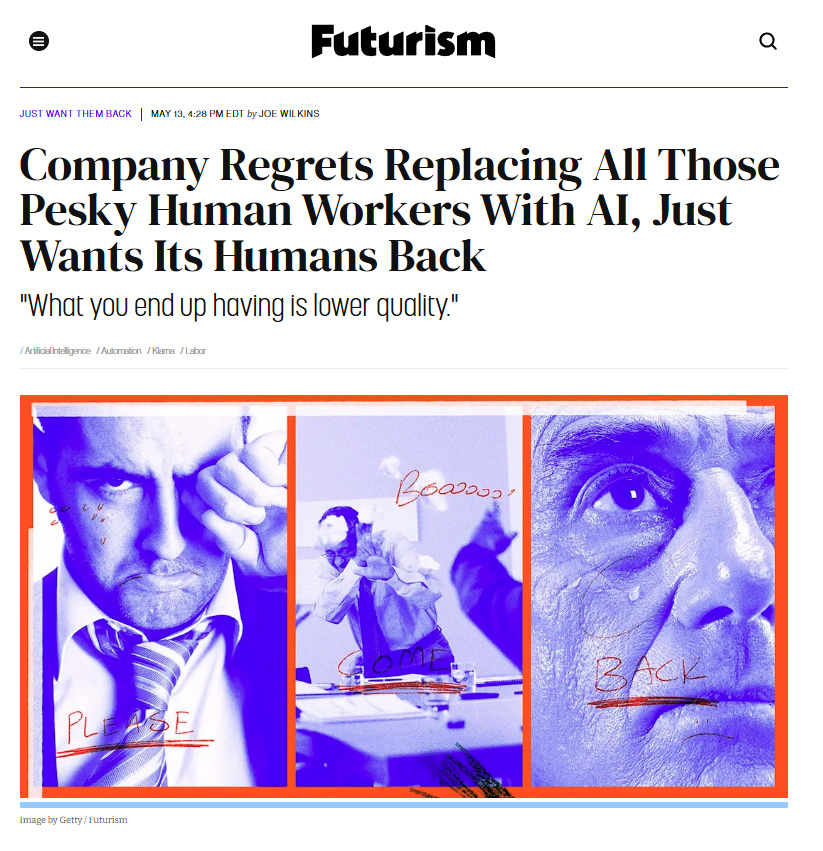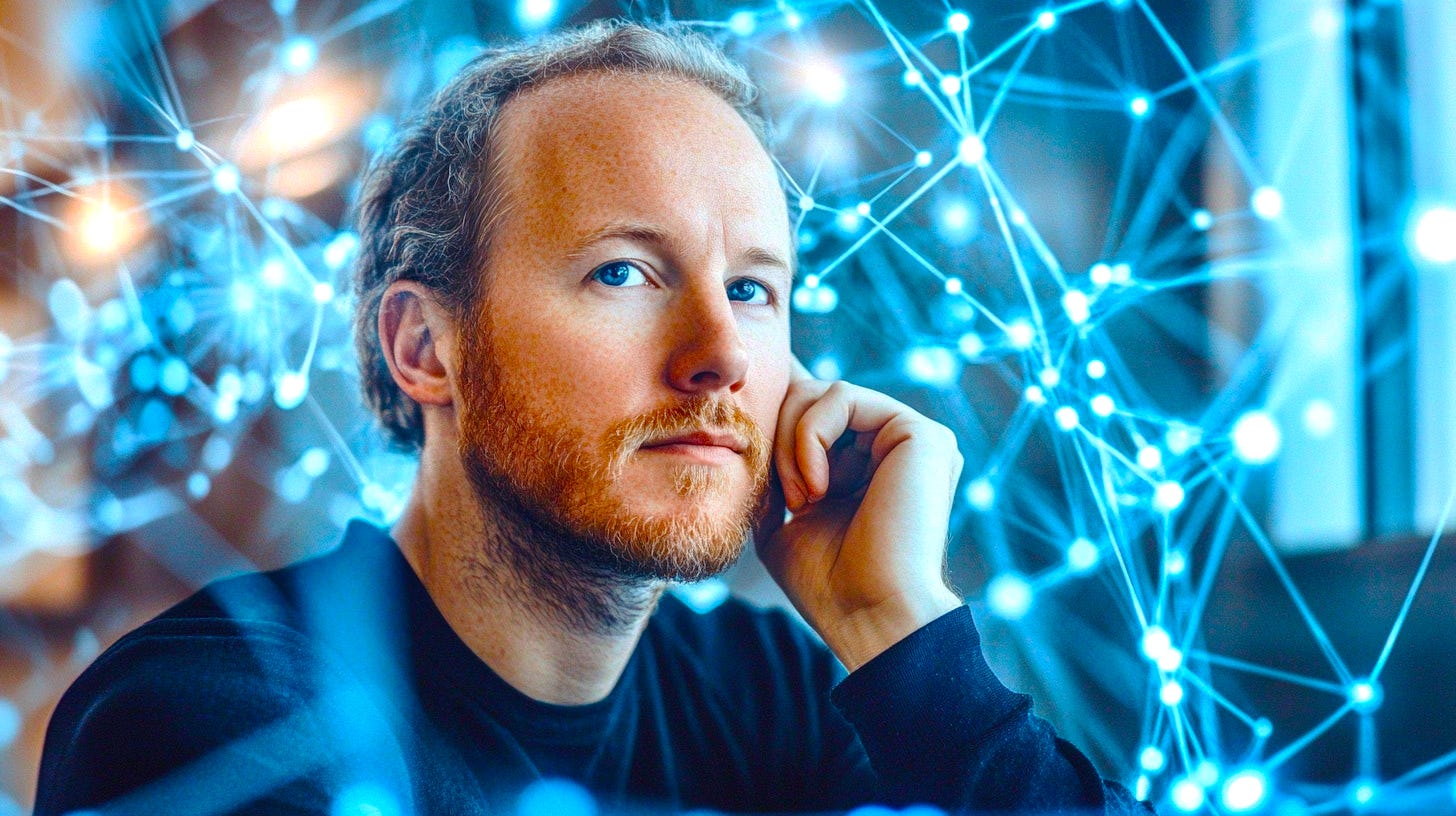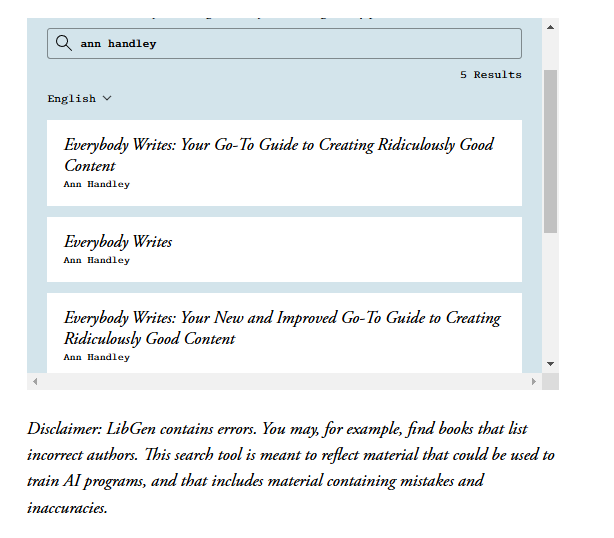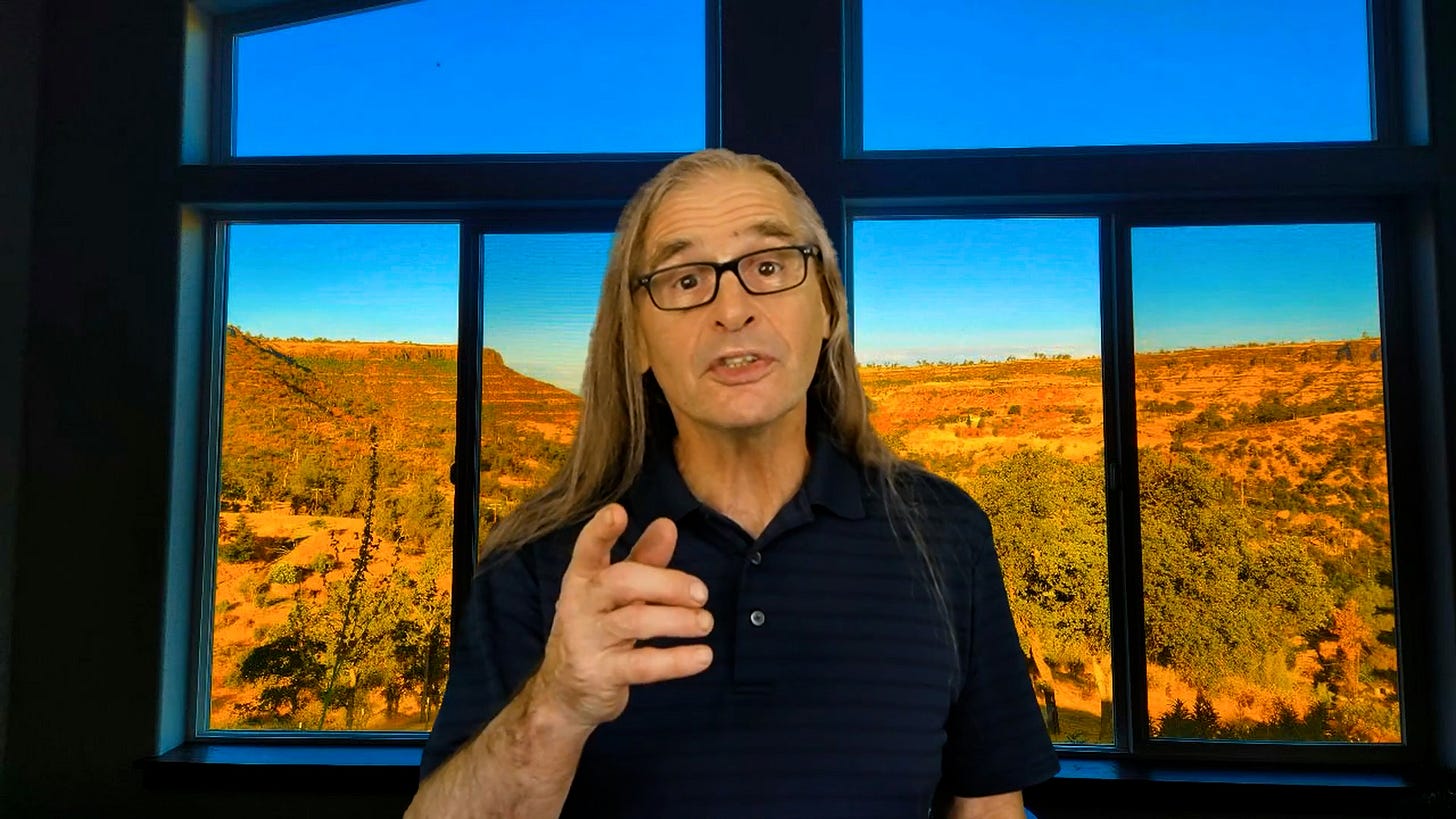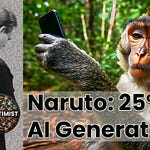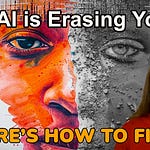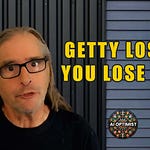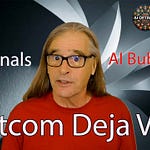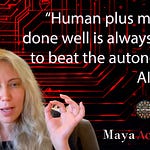We’re playing AI Copyright bingo and the only winners so far, are Big Tech….at least according to President Trump.
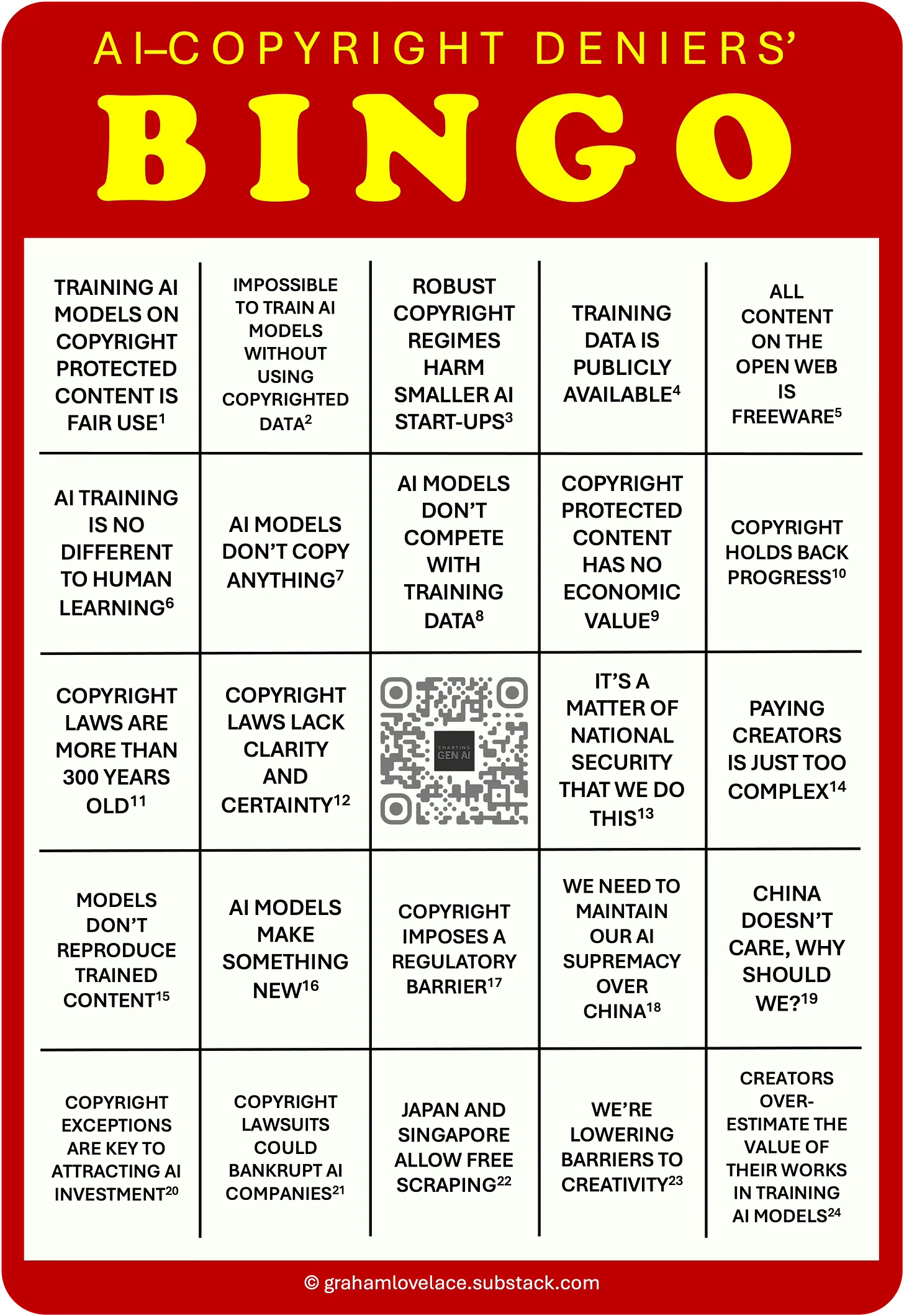
Anything you post or create is now fair game for AI in the US—and pretty much any AI worldwide. President Trump just made it official:
"China's not doing it ... and you have to be able to play by the same set of rules."
The US announcement: AI companies no longer have to pay for the books, articles, videos, or any content they use to train their models.
Big Tech and the US government finally agree on something. Your content goes into AI for free.
Give the AI industry credit for the propaganda machine that made this real. From Microsoft CEO Satya Nadella to Marc Andreessen, they kept repeating the same talking point until it became truth, then law, at least according to Trump:
"When a person reads a book or an article, you've gained great knowledge.
That does not mean that you're violating copyright laws, or have to make deals with every content provider."
It's persuasive sales copy. It's also complete BS.
When you read a book, you can't turn around and create millions of derivative works for commercial use.
You can't build a business empire by pattern-matching everything you've consumed. But AI can, and now it's almost legally protected to do so.
The Trump AI policy isn't just about copyright.
It's about what happens when we follow China's playbook.
The same China that's been the enemy of intellectual property for decades, taking whatever they want with impunity.
And while it’s not yet law, given the many Executive Actions President Trump has taken, it’s wise to take this as a sign to adapt early. He usually follows up on his promises in situations like this.
Now we're adopting their model because of fear-mongering about losing the "AI race": a race primarily about military applications, not whether ChatGPT can write better blog posts.
What happens to human creativity when taking becomes legal?
We've been hoping that recent legal rulings and licensing payments meant we were reaching some middle ground. Not fair, maybe, but at least acknowledging that taking people's work without permission, payment, or consideration was wrong.
Instead, Big Tech companies are knowingly buying copyrighted content from Dark Web sources like LibGen, because AI development is apparently more important than legal protections and creative traditions.
The real threat isn't just to your content—it's to the human edge itself.
If you don't encourage the people on the fringe, those who don't see, don't do, don't act like everyone else, to express themselves, you lose more than just their voice.
You lose the edge that shows us what could be, not just what was or what's popular now. That's where the new comes from. That's where we learn what's possible.
Think AI's amazing now? Wait until you see what happens when the creative edge disappears, when quality content creators give up because there's no protection or incentive.
When anyone can buy pirated content, feed it to an open-source AI model, and compete with the originals.
Your content has no protection. But your creativity still has value—if you know how to protect and position it.
This week's podcast dives deep into the mindset shift creators need to make. Not to give up, but to adapt.
To build resilience in a world where the rules just changed overnight. To remember why we create and how to thrive when the law won't protect us.
Because while Trump just handed AI companies a free pass, he can't legislate away what makes you uniquely human.
Question 1: Will AI Replace What I Do?
The ultimate question everyone asks me: will AI replace what I do? The honest answer is probably yes.
Will it ultimately be able to do everything you do? Maybe.
The question isn't whether AI will replace what you do.
The question is: what are you doing that makes you better than AI?
AI is patterns, probabilities, matching algorithms that give people what's been done before. It's about history, not innovation. It's not about vision or looking forward—it's about recreating what already exists.
While some jobs are being replaced right now, depending on that replacement happening might actually make you give up.
And that belief system becomes your reality. Those belief codes are what either make you grow or make you stagnant.
I'm not doing what I did when I began my career, and that had nothing to do with AI. So maybe if AI replaces what you're doing now, you're heading somewhere better. Somewhere that's not reliant on the repetitive stuff AI can handle.
Look at the Klarna example. The financial services company bragged about replacing customer support with AI. They got rid of people, celebrated the efficiency gains.
Now they're hiring people back. Because people had complex questions that AI couldn't handle.
AI spins answers, but it doesn't really understand what customers need.
Don't let "Will AI replace what I do?" become a self-fulfilling prophecy.
You're really saying "I'm afraid of being replaced," and in any career, that's always been a possibility. AI or not.
Start looking at AI copyright law changes not as something to blame, but as something to challenge you. Because you don't have another choice.
AI won't have human consciousness anytime soon. It won't have your experience, the way you process information through your eyes, ears, feelings. That's your advantage.
Remember this: you're unique. AI really isn't. It's built on what other people have thought, said, or done.
Next Steps for Creators:
Understand your uniqueness: List what you do that requires human experience, emotion, or forward-thinking vision.
Identify your "non-replicable" skills: Focus on work that requires human connection, complex problem-solving, or creative leaps.
Reframe the threat: Instead of asking "Will AI replace me?" ask "How can I use AI to enhance what only I can do?"
Document your process: Your thinking processes are harder for AI to replicate.
Build relationships: AI can't form genuine human connections—make this your competitive advantage.
The Trump AI policy might have made content gathering a bit more legitimate, but it can't legislate away human creativity, experience, and the ability to see what's possible rather than just what was.
Question 2: Can I Use AI for a Boost Without Betraying What I'm Doing?
This question reveals something deeper: the fear that AI will somehow betray your creative work. Betraying is a human characteristic.
How can something betray you if it's not human, if it's not even thinking?
The real betrayal? You're betraying yourself by not adapting.
Recognize the elephant in the room: "How can I protect myself from AI copying my work or stealing it?"
If you put anything on social media or the public internet, you don't stand much of a chance.
Under the new Trump AI policy, it's going to take your content. But AI cannot recreate your work verbatim.
It can't produce your ten-page article. It might create two pages if you're lucky, but it works in patterns, not perfect copies.
What makes AI different from what we had five years ago? Back then, Google would search the internet, find your information, and let people use it to answer questions. Now AI does the same thing. It just processes and responds faster.
The uncomfortable truth for many creators, especially in SEO: you've been kings and queens of taking other people's ideas and reshaping them slightly.
This is just how content has worked. AI loves to copy what everyone does because it works on probabilities. It leans toward the middle, the average, the predictable.
The more context you give AI, the better answer you get. But here's the key question: if somebody's really searching for your specific work, are they going to settle for an AI approximation?
Or is your fear of being copied just an excuse not to put anything out there?
If you're scared of content being copied, don't put it on the public internet. But if you want to get noticed, you have to put stuff out. So be smart about it.
Take the book example: give away a free chapter, or pieces of a chapter. Sure, someone can take that, but it's not the complete work.
That sample is what gets you recognized and puts you in front of people. Behind a paywall or password protection, you can keep your premium content safe.
But if you get too paranoid, no one's going to see your work. That's the trade-off you have to evaluate.
The fear of AI copying content has become an easy way for creators to say "it's over, everything's over."
But that's just one opinion among many—and opinions are all we have.
Keep creating. Build protected areas where your information isn't being taken, and ask people not to share it with AI systems.
Is it perfect? No. But it was never perfect, and work was being stolen long before AI came along.
Even AI companies have bought pirated books. Valuable copyrighted books like Harry Potter to train their models. Were those protected? Yes, and no. No one's completely protected under current AI copyright law.
The biggest thing AI can stop isn't your content being copied—it's your energy to create something new.
My biggest fear is that people will use AI as an excuse not to do anything, or rely on it so much that it does the work for them. Be careful not to do this!
Next Steps for Creators:
Develop a content strategy with layers: Free samples in public, premium content behind protection.
Use AI as a collaborator, not a replacement: Let it help with editing, brainstorming, or filling skill gaps.
Focus on what AI can't replicate: Your personal experience, unique perspective, and human connections.
Build direct relationships with your audience: AI can't maintain genuine human relationships.
Create "unfakeable" content: Work that requires your specific expertise, experience, or creative vision.
The Trump AI policy may have changed the legal landscape, but your creative value isn't just in the content itself—it's in your ability to think, connect, and create meaning that resonates with real humans.
Question 3: If AI Can Do What I Do... What Am I Worth?
If AI can copy what you do and your work looks like everyone else's, what's left?
There are a lot of businesses where people are already doing the same thing. Look at search engine optimization—it's been built on creating similar articles with slight variations so Google will rank you.
You're essentially doing what you accuse AI of doing: mimicking, copying, reshaping existing content.
But your worth goes far beyond any isolated piece of work you create.
Your worth comes from within. It shouldn't be defined by what an audience says or doesn't say, because anyone in the creative world knows that value is subjective.
What readers hear, what they think, how they interpret your work: that's based on how they feel from it, not just what you created.
When you can touch that connection and send it out into the world, it's magical. But don't expect it every time.
Your worth is much more than just what you create. It's the work you do on yourself, how you improve, how you learn and push yourself further.
Think about musicians. They love to play, learn, listen to others, and develop their own styles. Is it entirely original? No.
But it's entirely unique because no one else can create exactly what that individual creates, taking in those influences and put them out in their own way.
Your worth encompasses:
The people you work with
The problems you're trying to solve
The originality you bring to common challenges
Your experience and perspective
Your ability to connect and communicate
Don’t value yourself based on the things AI can do. That's just marketing designed to sell you something.
Whether it's OpenAI selling ChatGPT as revolutionary, or someone claiming their art is completely original and unreplicable.
Under the new Trump AI policy, the question "Can AI create that?" becomes "Maybe." But is that really what's stopping you?
The protection strategy isn't just about legal safeguards. You can put content behind paywalls where AI can't access it. You can block the bots. You can even get paid for your content (not much, but something).
AI can only take what's happened and create something sort of like what happened in different patterns.
It works great for predictable code. It works well for formulaic content. But for creative work, for writing that connects, for putting ideas together in new ways?
AI's job isn't to replicate what you do. It's to help you fill gaps and enhance what you're already capable of.
If you want to see AI as something that's constantly taking from you, then keep your work completely hidden.
But if no one sees your work, you'll never connect with your audience. When your audience really gets what you're creating, that's something AI cannot replicate.
Look at all the AI-generated content flooding LinkedIn and social media. It's bot mania, and it's completely vanilla. Generic. Forgettable.
Your worth is in stepping out and being unique while understanding the problem: over-relying on AI tools.
Next Steps for Creators:
Define your unique value: List the experiences, perspectives, and insights only you can bring
Build your "AI-proof" skills: Focus on human connection, emotional intelligence, and creative problem-solving
Create meaningful audience relationships: Develop trust and connection that transcends any single piece of content
Diversify your creative process: Don't let AI become a crutch—use it strategically to enhance, not replace, your thinking
Develop your creative voice: What makes your perspective unique isn't just what you say, but how you see the world
Focus on improvement over perfection: Your growth and learning process is something AI cannot replicate
It's in your ability to grow, connect, and create meaning that resonates with real humans—something that remains uniquely, irreplaceably yours.
The Over-Reliance Problem and What's Coming Next
The big problem nobody's talking about? Over-relying on AI.
What happens when ChatGPT goes down and you have a project due? You can't complete it because the tools aren't there.
If that becomes your reality, you're letting your skills erode. You're becoming dependent on it, addicted to it.
Be careful with that dependency. While AI can create work that might even be better than what you produce as a writer, it cannot become something you completely depend on.
Because when someone asks "Why shouldn't we replace you with AI?" and your answer is "AI does everything I do," then you are totally replaceable.
When you do the actual work, everything you've experienced, the way you see the world, your unique perspective—all of that comes through. And that's what ChatGPT fundamentally cannot do.
The Criminal Element Nobody's Discussing
Here's where the Trump AI policy gets really dangerous. AI companies just received a legal privilege: the right to take any content without permission or payment. But that's exactly what criminals have been doing for years.
If major corporations can now buy content from pirated sources, what's stopping bad actors from doing the same thing? Anyone can buy copyrighted content from Dark Web sources like LibGen, feed it into an open-source AI model, and compete directly with legitimate creators.
The AI companies acted like digital gangsters first—taking what they wanted, when they wanted it.
Now that it's legal, why wouldn't actual criminals take advantage of this privilege? The technology doesn't care if you're OpenAI or a content pirate. AI is AI.
We've just created a wild west where stealing becomes legal as long as you call it "AI training."
What We're Really Losing
This isn't just about individual creators losing income. We're witnessing an engineering-driven solution that completely disrespects the actual data. The human creativity that makes AI brilliant in the first place.
Without human creativity, AI dies. And we're setting up a system that will erode the very creativity that feeds these models.
When quality content creators give up because there's no protection or incentive, what replaces them?
More AI-generated content. And the problem with that feedback loop?
AI trained on AI-generated content doesn't improve models. It degrades them.
We're potentially witnessing the death of the creative edge that shows us what's possible, not just what was popular. The people on the fringe who see differently, act differently, create differently. The ones who push human understanding forward.
And many of these fears about AI replacement are more about how you feel about yourself than about what AI can actually accomplish.
AI is not a person. It's a series of pattern recognition algorithms and vectors that come together to produce some impressive results. But it doesn't give us you.
AI only gives you what's been seen before. In a world where that's becoming the legal standard, your human voice, your creative edge, your ability to see what's possible rather than just remix what existed, becomes more valuable than ever.
Bank on it.
Protecting the Human Edge in an AI-First World
The Trump AI policy represents more than a legal shift. It’s a fundamental choice about what kind of creative future we want to build.
By following China's model of taking intellectual property without permission, we're not just changing copyright law. We're potentially destroying the creative ecosystem that makes AI valuable in the first place.
This engineering-driven approach treats human creativity as raw material to be processed, not as the irreplaceable foundation it actually is.
In rushing to win an AI race that's primarily about military applications, we're sabotaging the creative intelligence that makes AI systems worth having.
But here's what the policy makers and tech giants can't legislate away: your human experience, your unique perspective, and your ability to connect with other humans in ways that matter.
The path forward isn't to retreat into fear or give up creating.
Yes, the rules changed overnight.
Yes, your content is now legally fair game for AI training.
But your creativity, your voice, your ability to see possibilities rather than just patterns? That’s your.
The creative edge isn't just a boundary. It's the frontier of human potential. Once we lose it, no amount of AI can bring it back.
In a world increasingly filled with vanilla AI content, your authentic human voice becomes essential.
The question isn't whether you can compete with AI. The question is whether you're ready to be more human than ever.
RESOURCES
Trump's bombshell to creators: 'AI wants your content, but Big Tech need not pay'
Let's play AI-copyright deniers' BINGO!
Search LibGen, the Pirated-Books Database That Meta Used to Train AI
Company Regrets Replacing All Those Pesky Human Workers With AI, Just Wants Its Humans Back
"What you end up having is lower quality."



